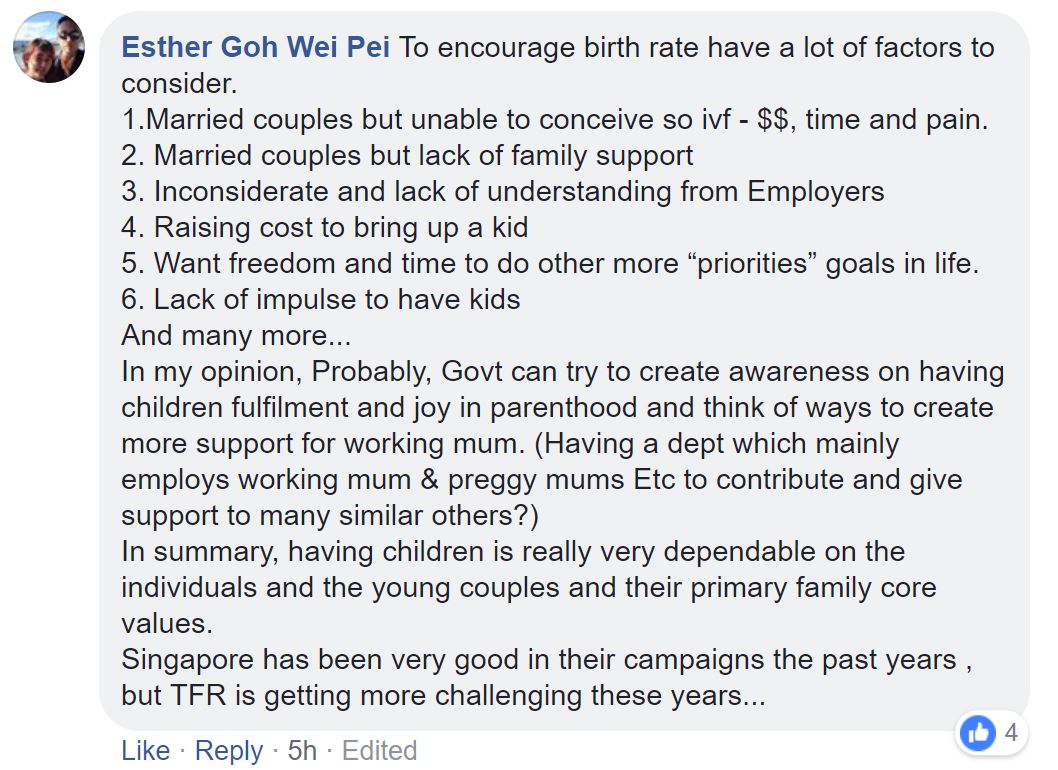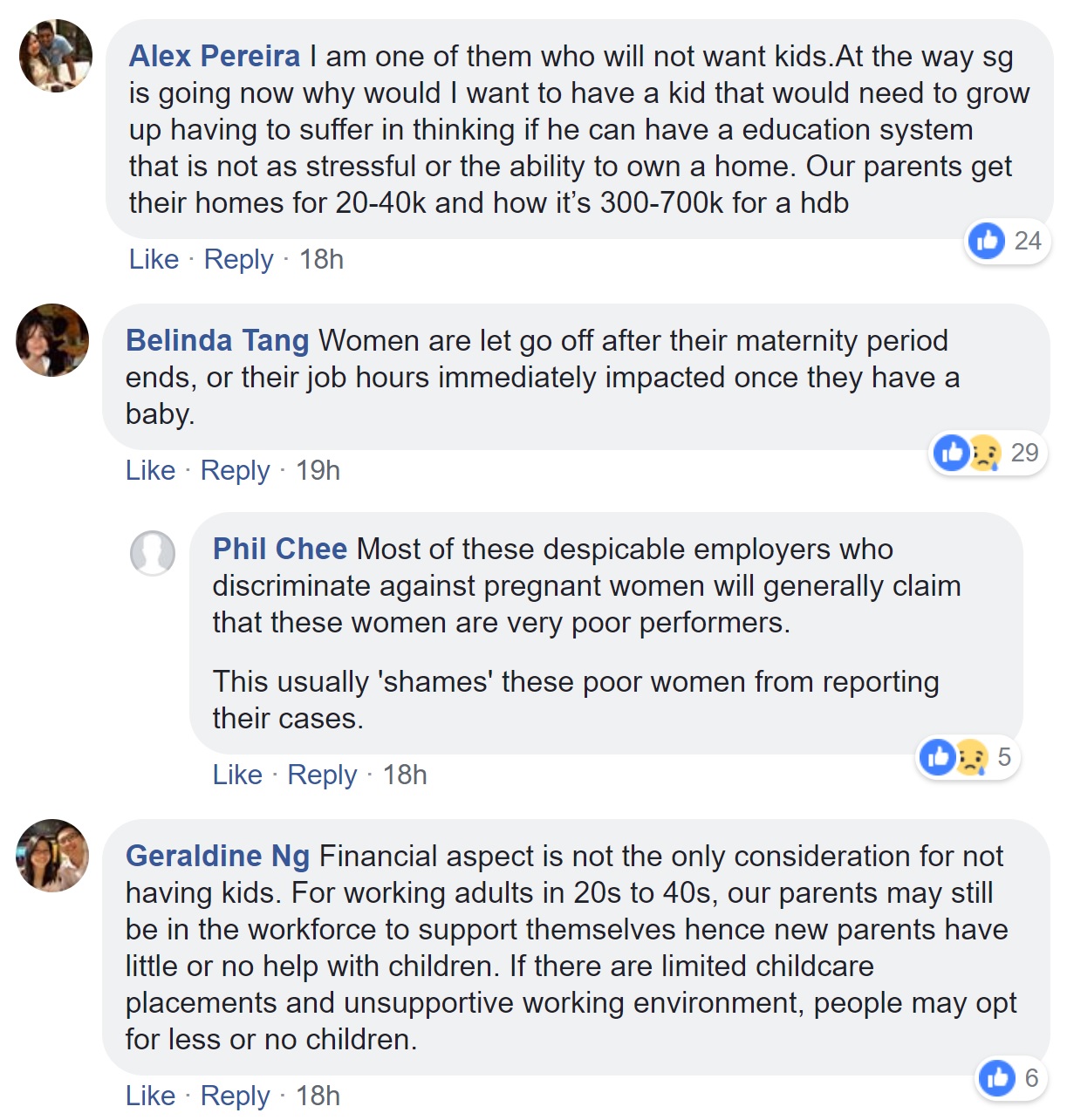A Straits Times forum letter, "Pull out all the stops to get young couples to have babies", has called for more to be done to improve Singapore's 1.16 Total Fertility Rate (TFR).
The letter writer, Seah Yam Meng, suggested for "better job protection for pregnant mothers, heavy subsidies during hospital stays and delivery, full year of paid maternity leave - essentially, the works".
An existential issue
Seah said the low birth rate is an existential issue much like Singapore's water survival.
He said that, at present, it was not favourable for young people to get married and have children.
They would rather aim for early financial freedom, indulge in hobbies and accrue enough for a comfortable retirement.
He also compared replacing of the population with foreigners to buying water "to survive instead of trying to be self-sufficient".
He hoped that policymakers would put themselves in the shoes of younger Singaporeans to solve the problem from their perspective.
Singaporeans agree
Seah's letter received hearty responses agreeing that more needed to be done to make it more conducive for Singaporeans to have children.
Some gave a list of benefits required to make the process enticing.


While others pointed out their worries:

[related_story]
Others disagree
Of course, there were others who felt that no amount of benefits can change people's minds or current measures were sufficient:

Root cause?
Several comments also said the root cause of low fertility was the cost of living:

In a separate ST article, National University of Singapore Professor Chia Ngee Choon, deputy head of the National University of Singapore economics department, and Chia Han Mae an actuarial data analyst, shared some findings on the impact of the Baby Bonus scheme on fertility rates.
They said that the one-off Baby Bonus gift had "no or little effect" on TFR.
Rather, it was policies which lowered the long-term costs associated with raising children that had "positive and significant effects on TFR".
Top image from Luma Pimentel
If you like what you read, follow us on Facebook, Instagram, Twitter and Telegram to get the latest updates.
